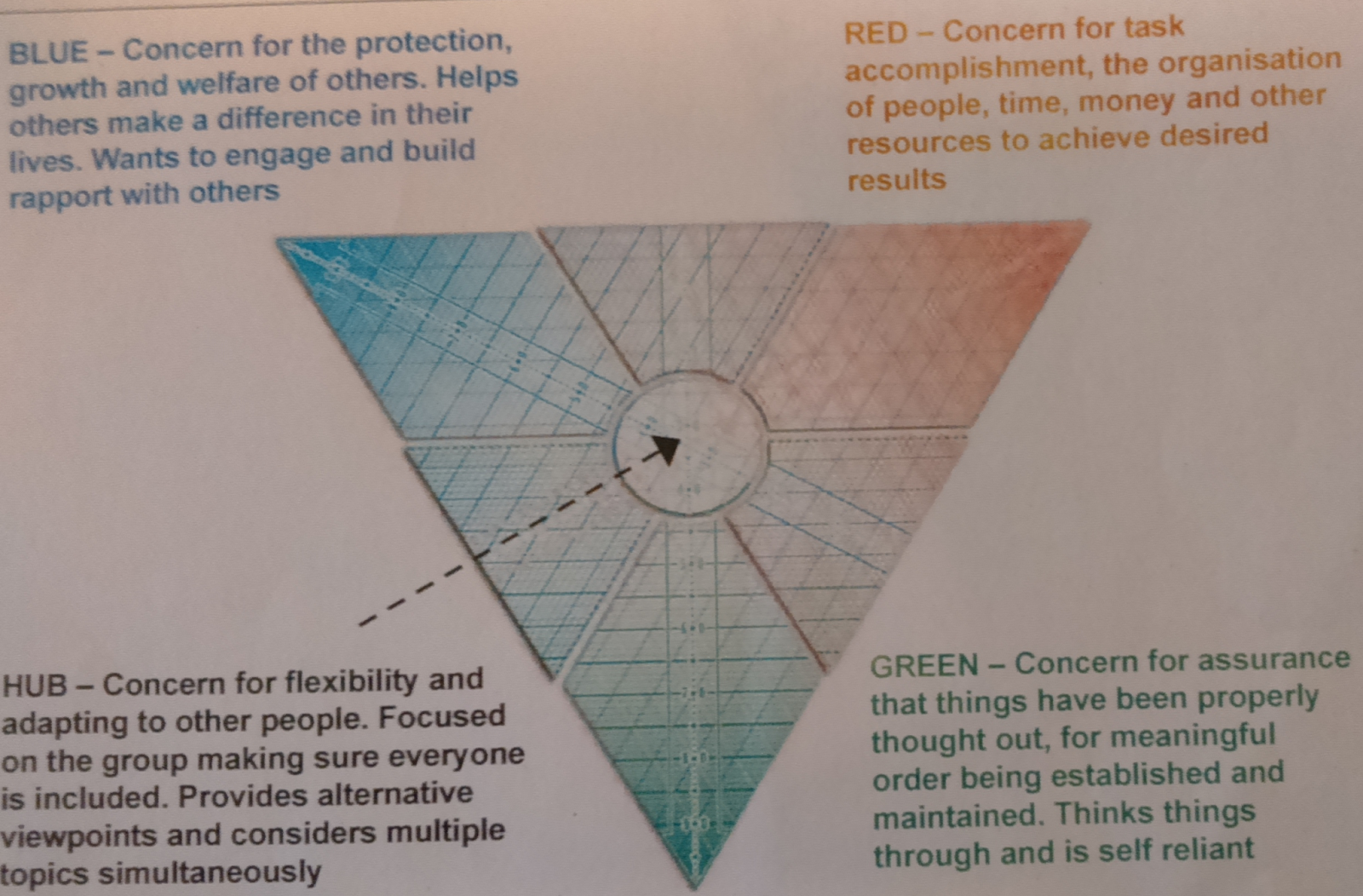- Occupational Personality Profile (OPP)
- General Reasoning Test Battery (GRT2)
- Cognitive Processes Profile (CPP)
- Emotional Quotient Inventory (EQi)
I had an interesting session with HR, as I didn't agree with some of the feedback. Bear in mind that I did rush through the assessments, so it could've been a factor. Anyway, the profile that was targeted at the time was for a Scrum Master role, which according to HR was an "average fit" (my point of contention!). Anyway, as the story unfolded - the management team felt I was too senior and experienced for that role, and instead offered a Senior Project Manager role, which I eventually accepted. Shortly after being hired, I ended up being promoted to a senior Program Manager role, where I remained for about two years, before branching out on my own as an independent consultant.
Current Level of Work: Tactical Strategy
Evaluate practices and systems to identify and co-ordinate optimal methods
Consider alternative routes to maximise the goal achievement of the functional unit
Potential Level of Work: Parallel Processing
Pursue and co-ordinate multiple parallel pathways
Synchronise and connect efforts of the different functional and/or business units
Focus on business processes and business strategy
Interpersonal Skills/ Team Orientation
A fairly sociable and outgoing person who enjoys working within a team. He feels at his most constructive as a member of a group. In meetings and discussions, he will frequently adopt a leadership role. Given his high need for affiliation he may however become a little restless if he has to be by himself for long periods of time.
Emotional Intelligence: Total EQi: Enhanced Skill
The Total EQ indicates an individual who overall feels good about himself and others and who is leading a successful life. Such individuals are generally optimistic about dealing with problems and have a positive outlook on life. He successfully controls his emotions and typically is not impulsive. He is probably realistic, assertive, and at least fairly successful in solving problems. He is likely to be optimistic and have a positive outlook on life.
Intrapersonal: Enhanced Skill
Interpersonal: Enhanced Skill
Stress Management: Enhanced Skill
Adaptability: Enhanced Skill
General Mood: Effective Functioning
Implementer & Coordinator
He should be particularly adept at co-ordinating a team to achieve a practical result. He will establish well-defined areas of responsibility in a group, supervise regularly, and set an example of conscientious determination and hard work.
Self motivation
A fairly optimistic person, he has a basic belief in his own abilities and will generally expect to be successful in most things he does. A very resilient and secure person who will be able to quickly recharge his batteries given demanding work schedules.
Communication
Somewhat more persuasive than most people he will be a moderately effective speaker, particularly when he is talking about a subject he is familiar with. He is fairly aware of social expectations.
Assertiveness
An extremely assertive person who usually dominates interpersonal relationships.
Forceful and at times somewhat brash, he rarely 'takes no for an answer'.
Quick to challenge he will speak his mind, even if it means upsetting some people.
He may be inclined to force decisions through, with scant regard for other people's feelings
Creative
As interested in artistic, creative activities as most people. While not overly creative he will nonetheless see the value of the arts.
Planning and Organising
Not inclined to be impulsive, he usually plans well ahead. He likes to work in a systematic methodical way, within fairly well defined structures.
Leadership Style
Directive: Characterised by having firm views about how and when things should be done.
Delegative: Characterised by delegating work to subordinates.
Subordinate Style: Informative & Receptive.
Generally, he is likely to produce creative ideas and innovative solutions. A very accommodating individual who is eager to complete the work that is assigned to him in accordance to pre specified procedures .
Reasoning Abilities
Verbal Reasoning: Slightly Above Average
Numerical Reasoning: Well Above Average
Abstract Reasoning: Slightly Below Average
Problem Solving Styles: Logical Reasoning
Looks for logical evidence to verify arguments. Follow reasoning processes through in a self-aware and logical way.
Reflective
Usually associated with a relatively slow approach, pace control does occur. Tendency to explore.
Learning Potential
Muhammad shows a high level of learning potential.
Recommendation
There is an average job-person fit. May be forceful and inattentive to the needs of others. May tend to be inflexible and resistant to change. Highly communicative, he may have difficulty distancing himself from subordinates and will not enjoy working alone.


